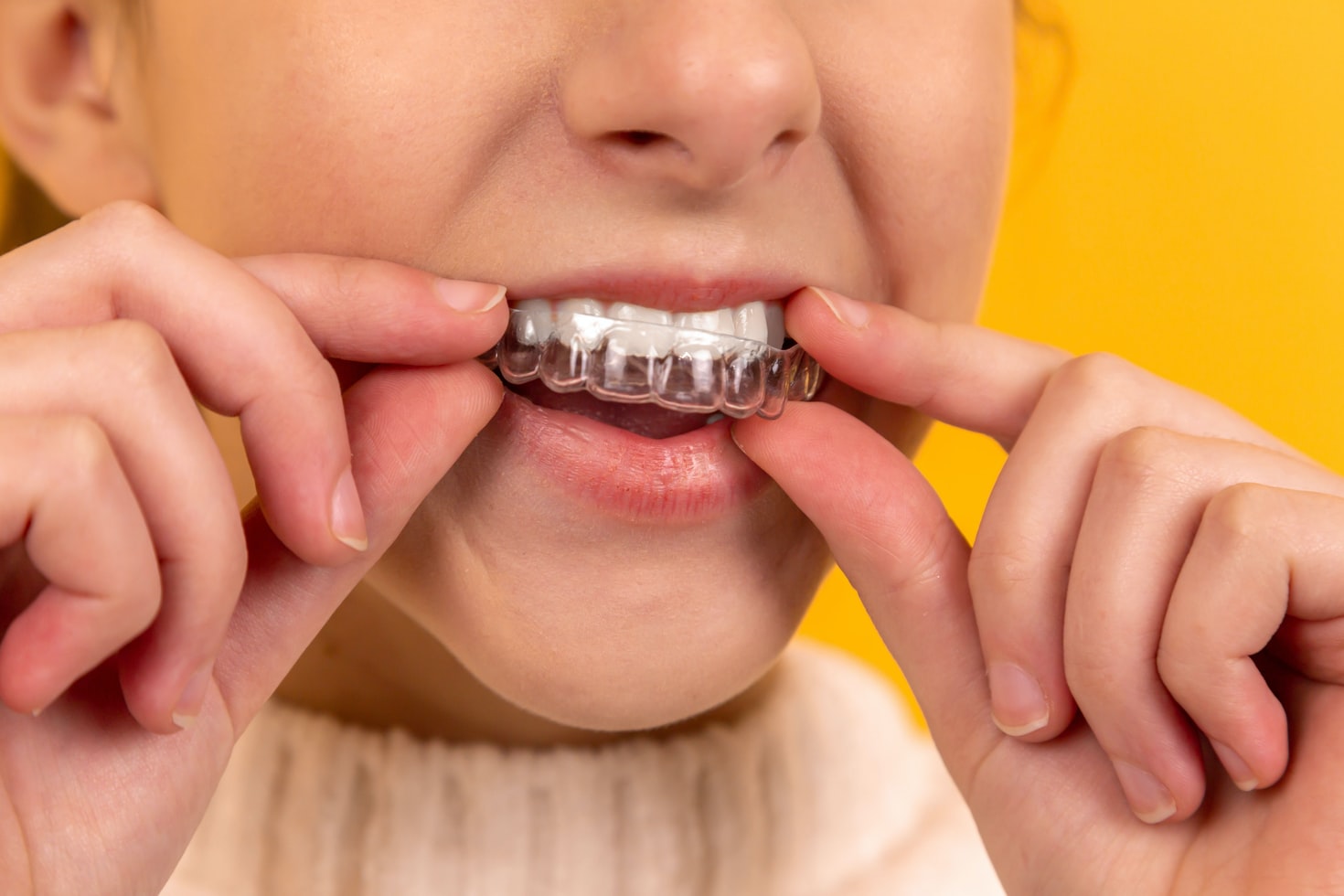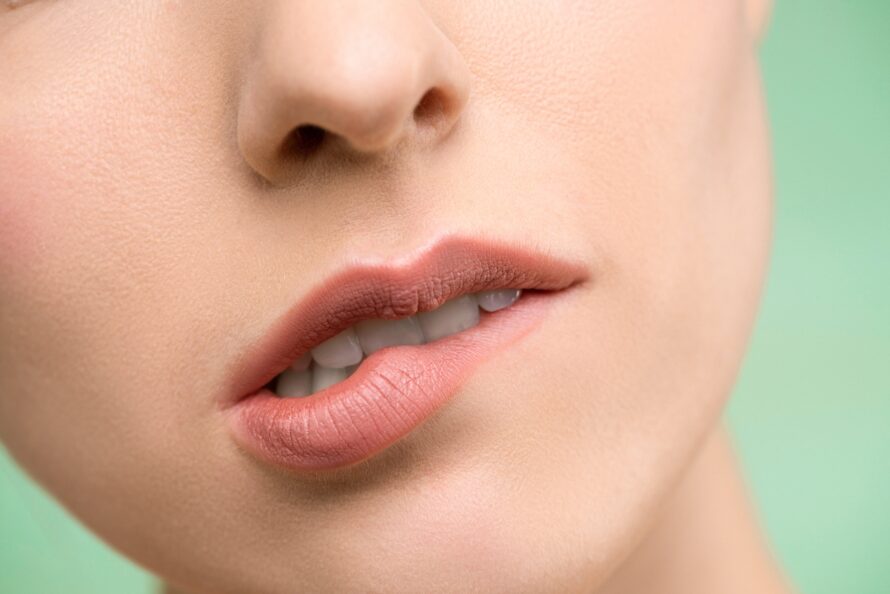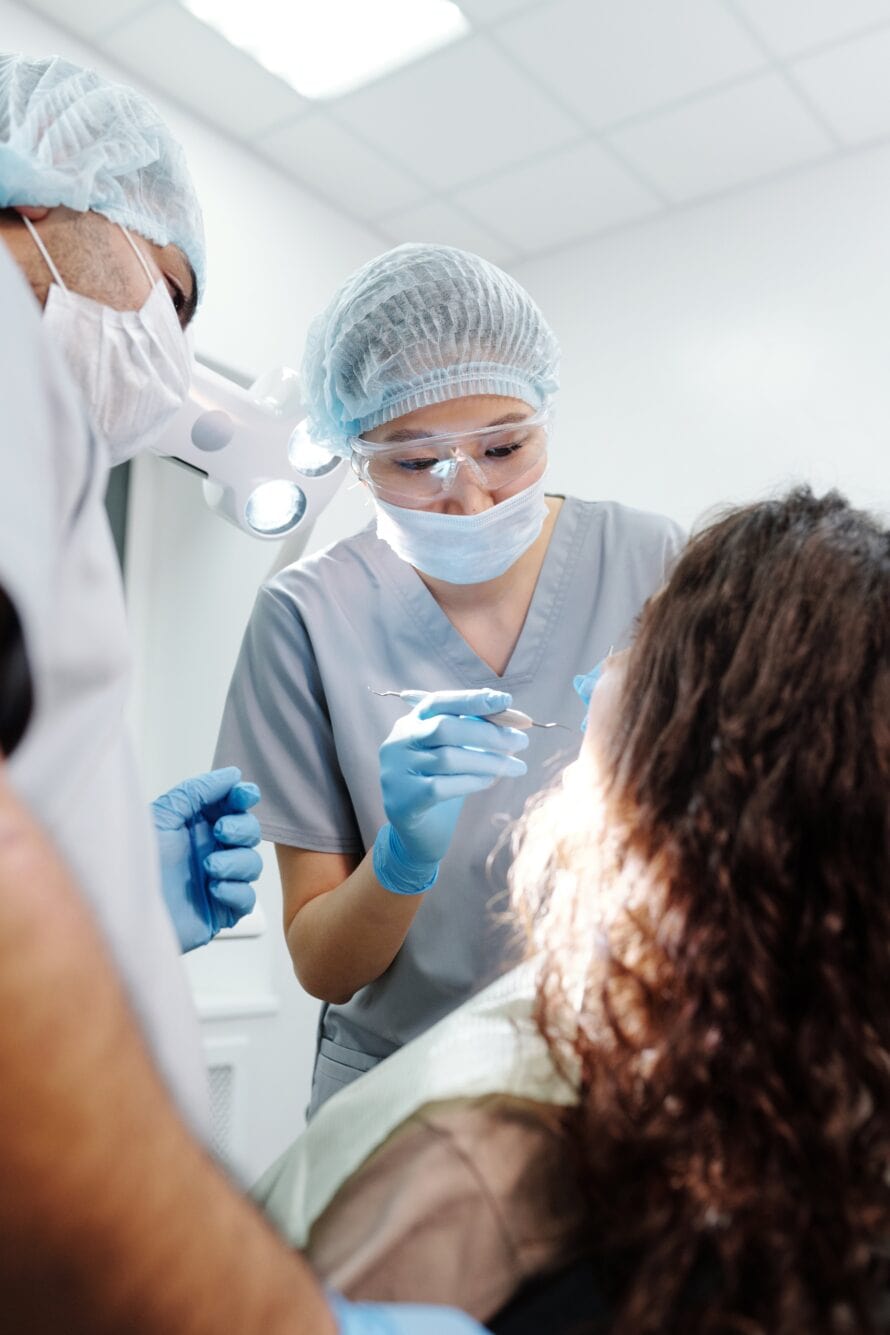
Four Signs You Might Need a New Retainer
March 1, 2022
Gum Bleaching, Whitening and Lightening: What You Need to Know
June 2, 2022Teeth grinding, also called bruxism, is the action of chronically clenching and rubbing your teeth together. Many people are unaware that they grind their teeth, since a lot of the time, this action occurs during sleep. If you wake up with a tender jaw, a dull, constant headache, or notice excessive wear on your teeth, you might be grinding while you’re asleep, or while you’re not thinking about it. This is a common condition that impacts more than one-third of adults during the daytime and one in ten adults overnight. In this article, we will help you recognize the causes and consequences of grinding your teeth.
[Related: How to Deal with Minor and Major Tooth Pain]
What Causes Teeth Grinding?

Teeth grinding can be caused by a number of different things. If you find yourself grinding your teeth while you’re awake, it is usually because of emotional issues, such as stress, anger, depression, or anxiety. It can also be spurred by intense concentration. However, pinning down the cause of sleep bruxism can be a bit trickier.
Sometimes teeth grinding during sleep can be caused by an abnormal bite or missing teeth, and can be exacerbated by acid reflux or sleep disorders including sleep apnea. Things like tobacco, caffeine, alcohol, and drugs can also increase cleaning and grinding.
What Are the Consequences of Teeth Grinding?
Frequently clenching your jaw or grinding your teeth may seem innocuous initially, but it can lead to significant grinding teeth consequences. The consequences of teeth grinding, also known as bruxism, encompass a range of issues, including tooth fractures, persistent headaches, jaw aches, muscular problems, and conditions such as Temporomandibular joint dysfunction (TMJ).
Chronic grinding can also wear your teeth down or loosen your teeth as well, leading to the need for root canals, bridges, crowns, implants, or partial dentures.
[Related: Getting Over the Hurdles That Keep You From Seeing Your Dentist]
How to Stop Grinding Your Teeth

Although you might not be able to completely cure yourself of grinding your teeth, especially if you tend to do it while you’re sleeping, you can definitely manage the impulses during the day and prevent too much wear and tear at night.
Here are a few tips to manage the underlying causes of teeth grinding:
- Cut back on or avoid caffeine, nicotine, and alcohol, especially in the hours before bed
- Avoid chewing gums and other non-food items
- Be aware of when you clench or grind and position the tip of your tongue between your teeth to train you to relax
- Relax your jaw muscles by using a warm washcloth compress against your upper jaw at night
- Manage stress through exercise, meditation, or therapy
- Go for regular dental check-ups
- Treat other dental issues such as misaligned or missing teeth
In addition to these tips, your dentist can also fit you with a mouth guard or retainer to wear at night to prevent teeth grinding during your sleep.
[Related: The Dental Detriments and Benefits to Coffee and Tea]
Contact Cascadia Dental Specialists Today!
Untreated teeth grinding, also known as bruxism, can lead to significant issues affecting both your dental health and jaw functionality. The causes and consequences of teeth grinding are manifold, potentially resulting in severe discomfort and financial burdens. If you wake up with aching jaws or persistent headaches, or if you observe yourself grinding your teeth during the day, it is imperative to promptly inform your dentist. By addressing the root causes and discussing suitable treatments, you can mitigate the adverse effects and safeguard both your oral well-being and financial resources.
Contact Cascadia Dental today to set up an appointment, or visit our website to learn more about our dental health services.
Featured image via Unsplash





